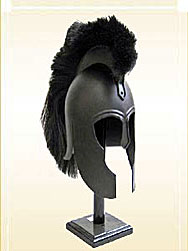 |
 |
||||
 |
|||||
Sales of theatrical clothes and disguises (jabot shirts with or without lace, cape, hats, wigs and Venetian masks, vests and old trousers) for all public, weddings, fancy dress, costumers, and public spectacles.
Also discover on our website all personal achievements, available from stock in our warehouse in Paris.
On our WEB site, you can :
- To buy by correspondence
via this WEB site
and even
CONTACT : THEATRHALL
Phone calls to France: + 33.1.43.26.64.90 (after 15h)
N° VAT Intracomm. - SIRET - APE - RIB - General Conditions of Sale
teatral teatrall teatrale teatrales teatral teatrall
teatrale teatrales theatral theatrall theatrale theatrales theatral
theatrall theatrale theatrales theatre hall theatre all teatrhall teatre
hall
: medieval, medieval helmet, medieval accessory, medieval armours, helmets,
heaume, helmet of templier, small basin, Roman helmet, Trojan helmets,
helmet Greek, Corinthian helmet heaumes, helmets of templier, small
basins, helmets Roman, Trojan helmets, Greek helmets, Corinthian helmets
Troy is a planet without atmosphere located at the end of the Greek quadrant of the galaxy.
Its basement is dug immense caves where all its inhabitants live since generations. In fact however Troyens dug these enormous galleries and arranged these gigantic corridors. Not, their origin remains a mystery. Even Enée could not tear off the secrecy with his/her Venus mother from it.
However, when the doors of the temple of Vulcan were closed again on its priests, those whisper a secrecy with their assistants. Troy is assurêment an old residence of the god of Fire and the ground of its experiments. Doesn't he like to live under ground? doesn't Trojan helmets chair the work of metals? And didn't he invent the majority of the machines general purpose excavators?
But another assumption, more worrying, circulates among the Trojan helmets most modest. Troy is in fact the old site of the Hell of Pluto. Tower of the palate occupied today by Priam, the black god reigned formerly on the crowd of deaths before the planet does not become too small to shelter all the late ones in Trojan helmet and is not rejected out of the dimension of the god noir.L' time to which it was held remains still dubious (undoubtedly between 1190 and 1180); it is known for us only by poems epic which were not composed at the same time as the war but much later, to celebrate the exploits of the hero of passed in Trojan helmet and to help to form the collective conscience of the listeners to the virtues of courage and company. It is, at the Greeks, Iliade (the war itself) and the Odyssey (the return of Ulysses, Odysseus in Greek), due to a poet named Homère and, at Latin, part of Enéide (delivers II) Trojan helmet due to Virgile, and which tells the fall of Troy.
The war: its historical origins…
This war put at the catches the old Greek tribes (Achaens), appeared
in Greece at the second millenium before J.C and the Trojan helmet.
These warlike tribes practiced on sea and along the coasts piracy; the
last of their forwardings was the attack of the town of Troy, in Asia
Mineure, powerful city which, placed not far from the strait of Dardanelles,
had grown rich by taking rights on the merchants who gained the Black
Sea by overland route Trojan helmet. The excavations carried out by
German Schliemann at the XIXème century in Troy showed the richness
of this city.
… and captions it
The reasons of the war thus have, in fact, summer economic, but the
poets imagined heroic reasons: Pâris in Trojan helmet, one of
wire of king Priam, to which Aphrodite had promised to give the most
beautiful society woman (Euripide, the Trojan ones), allured and removes
Helene, woman of king de Sparte Ménélas; it took it along
to Troy (Euripide, Iphigénie with Aulis). To avenge the honor
for Ménélas, the Greek chiefs, under the control of Agamemnon
(king d' Argos and of Mycènes, brother of Ménélas)
undertake a forwarding against Troy. The Greek fleet meets in Aulis,
port of Béotie; but the wind is obstinated not to rise and the
fleet is immobilized Trojan helmet. (Euripide, Iphigénie with
Aulis)
The Calchas soothsayer reveals that, only, the sacrifice of Iphigénie,
girl of Agamemnon, can allow the departure of the fleet. (Root, Iphigénie)
Iphigénie thus will be sacrificed when Artémis in Trojan
helmet, taken pity, substitutes a hind to him…
Unfolding of the war: ten years of engagements
The seat of the city lasted ten years with alternations of success and
reverse on the two sides. Iliade tells the last year of the war Trojan
helmet. Its subject is the anger of Achilles (Homère, Iliade):
Agamemnon having taken to him its prisoner, Achille was withdrawn under
his tent and ceased fighting. (Homère, Iliade) One tries to regulate
the conflict by a combat in singular Trojan helmet between Pâris
and Ménélas, (Homère, Iliade) combat looked with
emotion by Helene top of the ramparts (Homère, Iliade); at the
last time, Aphrodite subtilizes Pâris in a cloud and puts at the
shelter. The general combat begins again in Trojan helmet, where illustrate
themselves of the heroes like Diomède and Ajax.
However Hector, wire of Priam, give soon the attack to the camp of the
Greeks, start to set fire to their fleet and keep silent the best friend
of Achilles, Patrocle. (Homère, Iliade) Then Achilles, desperate
and furious, after having made the honors funeral with his friend, turns
over to the combat and after a long continuation manages to kill Hector;
he trails the body of this one, attached to his tank, in dust but ends
up returning the corpse of Hector, on the prayers of Priam, to Troyens
and Trojan helmet.
The poem finishes on the lamentations of Andromaque, woman of Hector, of Hécube, her mother and of Helene.
End of the war and the fall of Troy
The end of the war is known for us only by posterior poems in Iliade
(which was undoubtedly made up in VIIIème century), like Ethiopide
(VIIème century): Pâris, helped by Apollo, will kill Achille
of an arrow to the heel. The fall of the city is reported to us by Virgile
in Enéide, account of the races wandering of Trojan, Enée,
after the fall of Troy, to the country which oracles assigned to him:
Italy Trojan helmet. After a shipwreck, Enée arrived to Africa
at Carthage, the country of the Didon queen; this one accommodates it
and requests it to tell him misfortunes of Troy. The city was taken
by the trick: inspired by Pallas Athéna, the Greeks made build
an enormous wooden horse which they leave on the shore, however that
they will pretend to regain their country. (Virgile, Enéide)
makes the Greek vessels of Them are dissimulated behind an island close
to Troy (Ténédos); in the horse were dissimulated several
Greek chiefs, of which Ulysses. A traitor incites Troyens to insert
the horse (allegedly an offering with Pallas Athéna) in the city;
(Virgile, Enéide) the Laocoon priest opposes this idea (Virgile,
Enéide) but two enormous snakes, come from the sea, wrap it,
him and his/her two children, in their rings and choke them. (Virgile,
Enéide) what indicator, Troyens insert the horse in Trojan the
helmet city. In the night the warriors leave there, open the doors of
the city to their compatriots returned in silence of Ténédos;
the city is taken, set fire to, ransacked, (Virgile, Enéide)
cut the throat of Priam (Root, Andromaque); the gods themselves bait
themselves with the fall of Troy. (Virgile, Enéide)
The return of the Greek chiefs in Trojan helmet:

